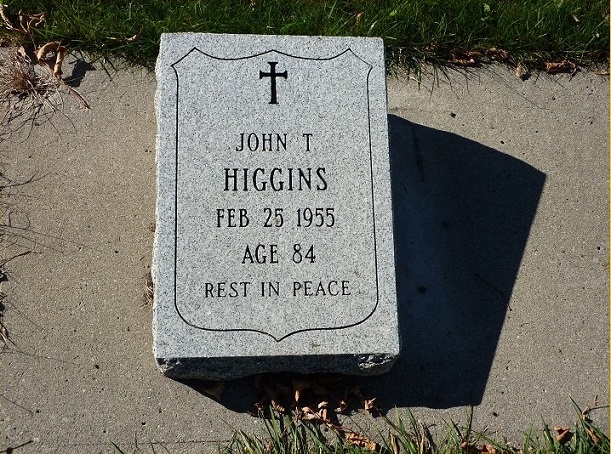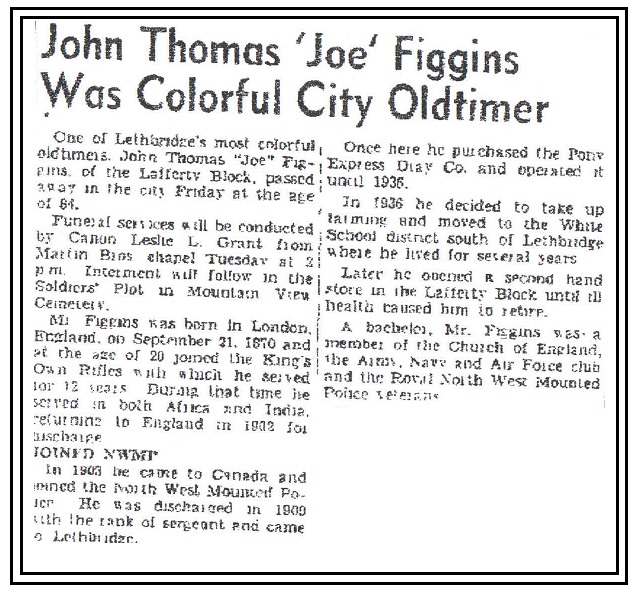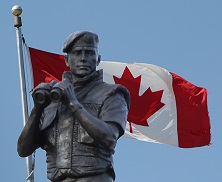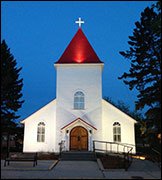True and Fascinating Canadian History

The Mystery of The Mountie: Oh Dear Sergeant Figgins
(But his grave marker spells Higgins)
by J. J. Healy. RCMP Vets, Ottawa, ON
In the early days of the Force, it was customary to sometimes rename new recruits depending on the whim of the Sergeant on duty. On a particular day, if the desk Sergeant preferred ‘MacDonnell’ over ‘MacDonald’, you were forever MacDonnell beginning with the engagement documents.
Apparently, some North West Mounted Police were never positive of their true identity. Some recruits wrote home to tell their parents that their historical, once proud family name had been changed – and without fanfare or ceremony. The Sergeant and tradition said: ‘Get over it’. Hardly. Healy doesn't resemble Haley. It was Healy at Fort Whoop-Up.
Traditions are hard to ignite and harder to dismiss. A similar habit of name change occurs in the Force today. Mispronouncing a person’s name is purposely carried on in the basic training environment. An improper tag tends to unnerve some recruits/cadets.
A lack of reaction can be positive whilst a stall or inability to perform is quite useful information to the instructor – after all, it’s his or her duty to condition the recruit to real-life conditions on the street. Think about the times when the police officer is confronted on the street and a suspect is in a rage. Perhaps drunk. More likely ‘amped up’.
On the one hand, little time is properly taken by the suspect to search for the correct pronunciation of the officer’s name. OK, some words cannot be printed here. On the other hand, it’s hardly appropriate for the police officer to worry about literacy or to correct the suspect. One takes life as it comes.
However, under all regular social norms, one’s name is very special. Every person is unique in the world and one is supposed to feel singled out. Special. Somehow ‘Farper’ doesn’t have the same ring as ‘Harper’.
Not all that long ago, Mr. Reg Keatley, an RCMP volunteer for the Graves Discovery Website wrote a letter of concern. Reg had stumbled upon a worrisome mystery. He had gone to an Alberta cemetery in search of police graves. The cemetery administrator was very helpful. She provided Reg with a complete list of all the known graves and their exact locations.
Later, while verifying the names and marker locations, Reg came to one grave stone which was very, very perplexing. The name on the stone did not match the name on Reg’s list! Reg described the mystery as the ‘mother of all horrors’. The name on the stone read ‘Higgins’ versus ‘Figgins’!
Naturally, Reg quickly retreated to the cemetery office to verify his information. Perhaps he had made a mistake? No, no mistake was made said the administrator – a Mr. Higgins is lying in the space of Sergeant Figgins – in philosophy one can argue that stones have rights, but a spelling mistake on a stone is confounding. Mysterious?
A mystery is a mess by any other name. Records held in the RCMP National Grave Database show no ‘Higgins’. However, Reg.#4004, John Thomas Figgins joined the North West Mounted Police (NWMP) in May, 1903. One can surmise that Figgins was a very special member of the Force. Hasn’t a decision been reached that everyone is special to the world? No doubt Figgins was interested in the NWMP. He likely pursued a higher rank – let’s say he wanted to be noticed. So far, everything done by the books.
^ Back to Top ^
One might say that Figgins’ world was turning on its natural axis. Naturally. It seems that the NWMP was also interested in Figgins. A few weeks after engagement, Figgins was promoted to Sergeant at Fort MacLeod -- his new post was Provost – a fancy word for Guard duty. However, after six years, Figgins quit.
Little is known presently about his life afterwards, but Sergeant Figgins died in 1955. For awhile, everything seemed to line up within Figgins' galaxy but something unknown caused a downturn in his career. What could have happened? More often than not, life will throw one a curve. Nonetheless, is Figgins not well deserving to be remembered? One could argue that the dead also deserve rights afforded by the rule of law.
Assuming the role of investigator, Reg Keatley the volunteer, naturally began a mental check off of likely questions. Who best can determine the true identity of the person in the grave? Or, is there in fact a corpus in the grave? At first blush, no one knows with any certainty the true identity of such corpus. We have a mix-up in communications. The dead are not talking.
Oh, Dear Sergeant Figgins
There once was a Mountie named Figgins
But, a guy with a chisel chipped Higgins
He didn't intend,
To hurt or offend,
But now we must go deep diggins.
The investigator or the archaeologist might be on safe ground to speculate that 'Figgins’ is buried in the spot, but the unbiased investigator would be equally safe to say for example, that Smith or Brown is the occupant of the hole. The fact remains, we have a dilemma; on the last day when the trumpet sounds the body under the stone may or may not respond to the call of the name 'Higgins' and may wait an eternity for his name 'Figgins'.
For today, Sergeant Figgins is a man with no identity. He can’t call his grave space his own. He has lost his name. The man with no name. What can be done?

A person’s name is connected to his or her dignity, their worth. No one wants their name confused with another’s. A name is like a mysterious magnet between the visible person and the invisible soul.
'Diggin for Figgins' ought to be adopted as a rally. Sergeant Figgins deserves more. He deserves his true name on his grave stone.
Reporting from Fort Healy,
J. J. Healy
January 24, 2011





